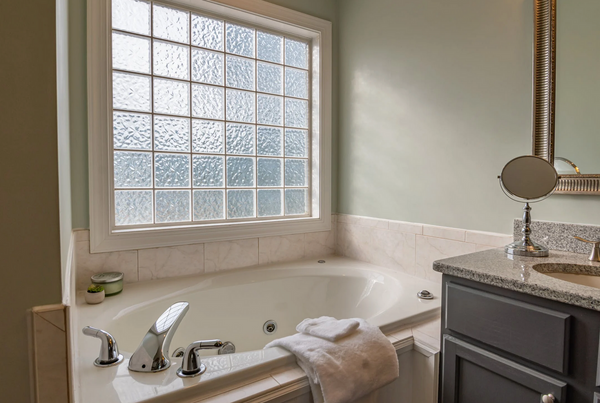These 5 lifestyle habits aren't a well-kept secret. But, their consistent presence in health discussions seems to prove that they have a timeless significance.
Here, we share practices that can easily be incorporated into your daily life. They may be simple things, but they can make a world of difference!
Staying Active
We hear time and time again that physical activity is great for our overall health, especially when it comes to the functionality of our bladder and bowels. To get these benefits, we need to be active for a minimum of 30 minutes per day.
This doesn’t mean that you must do all your exercise at once. Everyday activities such as walking to the store, tending to your garden, house cleaning, and taking the stairs all contribute significantly to this goal and can be seamlessly integrated into your daily routine, and they all make a really big difference!
A Nutritious Diet
 For a healthy gut, bladder, and bowel, the key ingredient is fiber—fiber, and more fiber!
For a healthy gut, bladder, and bowel, the key ingredient is fiber—fiber, and more fiber!
Sufficient fibre intake means your bowel function will improve, helping you avoid issues like constipation.
Yes, you can get your fibre from foods such as cereals and breads, but the most nutritious way to achieve this is by incorporating plenty of vegetables and fruits into your diet.
Not only are they rich in fiber, but they also tend to be less calorie-dense, so you may even lose a few pesky kilos.
To meet your fiber goals, aim for a minimum of five servings of vegetables daily (approximately five heaped handfuls) and two servings of fruit per day.
Drink Enough Fluids (especially H2O)

If you decide to increase your fibre intake, then it is essential you increase your fluid consumption as well.
Drinking a sufficient amount of water and staying hydrated plays a pivotal role in preserving healthy bladder function and promoting good digestive health.
Caffeinated beverages, fizzy drinks (including zero-sugar drinks) and alcohol tend to be irritating to the bladder, so water is the best choice.
A common tendency is to limit the intake of liquids when dealing with bladder issues, however this is actually the opposite of what should be done. Limiting fluid intake can potentially lead to more discomfort, such as urinary tract infections (UTIs).
Strengthening Your Pelvic Floor
A strong pelvic floor is essentially considered as your insurance against incontinence. The beauty of exercising your pelvic floor is that you can do so anywhere, anytime, no matter your age, sex, or fitness level. Committing to daily pelvic floor exercises increases the likelihood of gaining better control over bladder issues and may even help reverse any challenges you've been facing.
For comprehensive information and a variety of exercises, visit the Continence Foundation of Australia's website. They offer a wealth of resources and support, including access to continence nurses if you require additional assistance.
Practicing Good Bathroom Habits
If you are in the habit of going to the toilet ‘just in case’, well, you need to stop that habit as soon as you can.
If you continue to empty your bladder ‘just in case’ too often, your bladder might not actually be able to fill up properly, or potentially cause bladder shrinkage, which will in turn make you feel as though you need to use the bathroom more frequently (a condition known as urge incontinence.)
You might not think much about these lifestyle habits, and you may have heard them time and time again, but remember, these habits are not just good for your health; they are essential for a happy and comfortable life.


 For a healthy gut, bladder, and bowel, the key ingredient is fiber—fiber, and more fiber!
For a healthy gut, bladder, and bowel, the key ingredient is fiber—fiber, and more fiber! 




